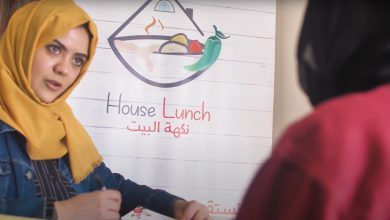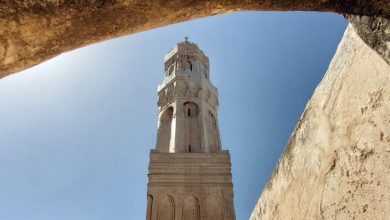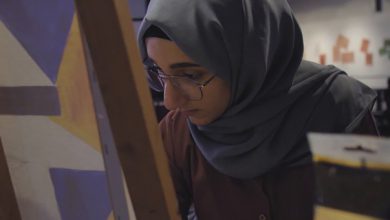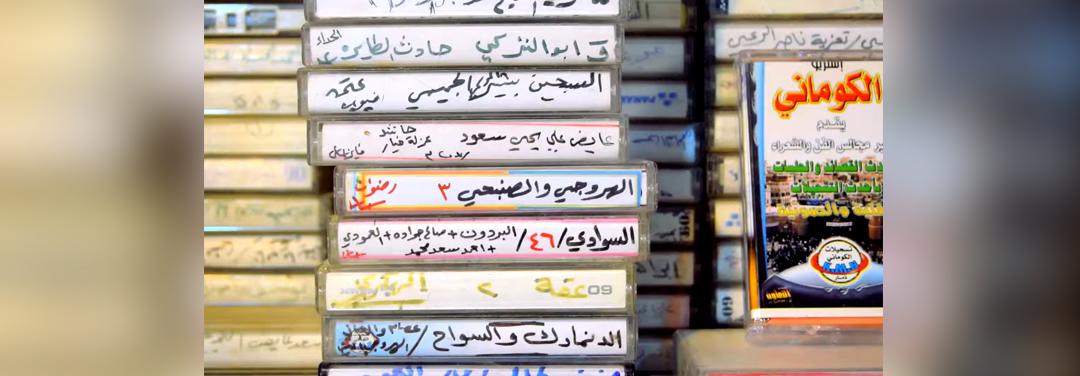
This post is also available in: العربية (Arabic)
Folk culture is close to people’s everyday concerns and joys, ones that are present in their daily lives. That is why the influence of folk culture is greater than that of elite culture. Folk poetry has formed a vast and rich field in the studies of ancient and modern societies. Through the study of folk poetry, researchers have discovered the responses people have had towards various life problems, and their ways of dealing with such problems.
Folk poetry holds great importance for people. In fact, the closer people are to Bedouinism, the nomadic Bedouin form of life, the more attached they are to folk poetry. Folk poetry is popular in every Yemeni village and city and is of great importance to Yemeni people. It shares the sadness and happiness of the Yemeni people throughout time. The various types of folk poetry, such as al-Qasidah,[1]al-Zamel,[2]al-Hal,[3]al-Balah,[4]and al-Razfah,[5]and all other forms have been the constant companions to people during their everyday. Music and folk poetry have been intertwined for a very long time, and some types of folk poetry, such as al-Zamel, al-Balah, and al-Hal, have been performed and recited in the form of melodies and rhymes without musical accompaniment.
Unlike standard Arabic poetry, popular folk poetry is often verbally composed and recited, so it is rarely written down, and therefore it is difficult to determine which poems are the oldest. For example, a very famous poet from Dhamar is Ghazalah al-Maqdashi, who lived during the 19th century. Despite the fact that there were hundreds of poets in the same era, she was the only folk poet from the period that we still know about. Since the second half of the 20th century, many countries have given more attention to folk poetry, preserving folk poems by writing them down or recording them. These efforts, however, were limited.

We have been fortunate in Yemen to have a small cultural organization that has assumed a key role in the preservation of folk poetry and heritage. Al-Komani Records has, for more than 40 years, recorded tens of thousands of popular and folk poems, saving them from being forgotten. It has exerted greater effort than the Ministry of Culture in Yemen and carried out an unprecedented role in the Arabian Peninsula.
Ahmed Salah al-Komani (who died in 1991) and his brother Abdullah came up with the idea in the mid-1970s. They founded a small music studio called Majlis al-Fan Wa al-Shuaraa (The Arts and Poets Council), where they started recording dozens of poems by folk poets as songs, and marketed them to Yemeni expatriates in Saudi Arabia. The distribution of their productions in Saudi Arabia continues even today. The cassettes had an introduction that said ‘Welcome to Majlis al-Fan Wa al-Shuaraa’ and were hugely popular. The demand for these poems increased, and the poets themselves started to approach the studio to compose and sing their poems. There was so much demand, and the studio did not have the capacity to compose all the poems, therefore the poets started to pay the studio to record their songs. At the beginning, the studio was not profitable, but rather an entity that was driven by the brothers’ love of poetry. However, due to great pressure and demand from poets, Ahmed started charging them for his work. He, however, kept recording the songs of famous poets for free. Examples include Mohammed Nasser Saber (who died in 1992), Abdulaziz al-Qaashami (who died in 1997), Ahmed Saad Qahmad, Mohammed Nasser al-Montasser, Mohammed Ahmed al-Maqdashi (who died in 2014), Mohammed Hussein al-Harouji (who died in 2007), and Hussein al-Abal. The poems of Mohammed Nasser Saber were the most popular, from the formation of the studio until the beginning of the 21st century. Al-Komanis, despite all the work they had been doing, did not neglect working on the works of poets who defended national causes and issues, such as Ali Nasser al-Qardaei (who died in 1948), Saleh Sahloul (who died in 2014), and Ahmed Abd Rabbu al-Awadhi (who died in 1973).
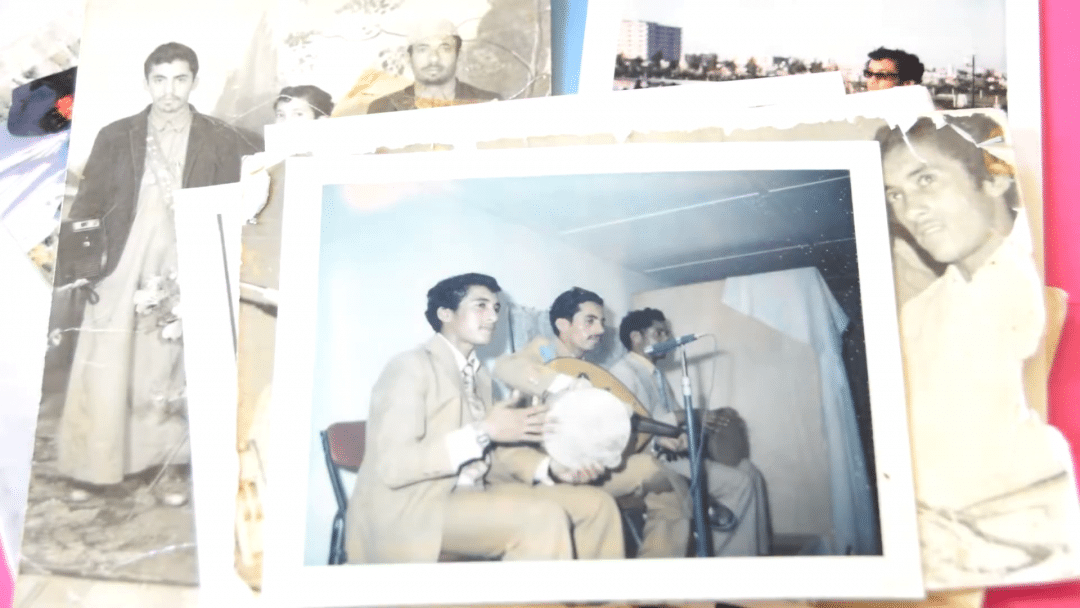
The two brothers had two different roles in the studio. Ahmed composed the rhythms and played the oud, a lute type instrument, while Abdullah accompanied him in the composition. The brothers started a revolution in folk culture by transforming poems and Zawamel into songs that used the oud and drums. They preserved this musical style and did not introduce any modern musical instruments into their songs. This style was passed from the original singers and poets who worked in al-Komani Studios to the new generation of singers. At present, al-Komani Studios continue their work, and it is managed by Ahmed’s children, led by Mohammed Ahmed Salah, known as Abu Hesham, who plays the oud, and his brothers, who take care of other tasks.
Al-Komani preserved the heritage of poetry through the composition of songs that feature his touch. That was not the only way he preserved and recorded these poems: he even recorded poets reciting their own poems, which al-Komani Studios then produced and distributed at the local level. Al Komani had three methods for the producing, recording, and distributing poems. The first was to compose them into songs that use the oud and al-Tar.[6]The second method was singing poems with al-Tar. The third was reciting the poems without any accompanying musical instruments. Poets at the beginning recorded their poems with their own voices, but now there are many artists who recite these poems. Poets can, however, still record the poems themselves.
In al-Komani Studios, the person who sings or recites these poems is not called a singer but a ‘composer’, while the piece that is sung is not called a song but a ‘composition’. That is due to the difference between songs, which are more of an urban form of music, and folk poetry, which is not suitable for dancing rhythms and is closer to rural people. Ahmed and Abdullah worked with many folk poets to compose and perform their folk poems. Their first composer was poet Hussein al-Mussabi (died in 2018). He was followed by poet Abdulaziz al-Qaashami, who was part of a duet with Ahmed Salah al-Komani, and had a great role in highlighting this type of folk culture. Many other composers worked on the composition of songs from these poems. Examples include Ahmed Hussein al-Shanbali, Saleh Moqbel al-Sawadi, Ridhwan al-Maqdashi, Abdulilah al-Methali, and Ahmed Youssef al-Nusairi. There are many younger composers who are popular now, such as Abu Mahran, Abu Khulood, Abu Shihab, Abu Amer, Abu Shams, Abu Abdulaziz, and Abu Aqeel al-Qufaili.
A number of these folk poems were distributed and contributed to the resolution of many issues and disputes, such as tribal wars or vendettas, in districts across governorates. Ahmed al-Komani, while he was in charge, and now his son Mohammed refused to record any poems that incite or fuel wars and conflicts. The poems they composed address many different issues related to the life of Yemeni people. The most famous recorded poem produced by their studio was produced in the late 1970s, a folk poem by Abdulaziz al-Qaashami mourning the death of President al-Hamdi. The poet Abdulaziz al-Qaashami and Ahmed Salah al-Komani were both imprisoned because of this poem.

Some poems talked about the expatriates who had left Yemen and lost touch with their families. These poems would spread among expatriates, sometimes reaching the person addressed in the poem, who would then get in touch with their families. There were also poetry debates and contests where a poet would recite a riddle in the form of a poem, then other poets would have to find the answer to the riddle and compose a poem that rhymes and has the same structure as the original poem. These contests had many fans and followers.
Some of the poems recorded by Al Komani Studios were polemics between poets from different areas. This type of poetry has many fans who wait for a poet to write a poem to another poet, and wait for the response. For such poems, al-Komani made sure that the original poem and the response were recorded on the same cassette to sell more copies.
Another popular type of poem from al-Komani Studios was from prisoners describing their problems and pains. These prisoners and their issues gained a lot of sympathy among listeners, and many of these issues such as vendettas, debts, and aggressions were resolved after these poems were distributed.
Poems composed in the studios came from different areas, and these areas include the majority of areas in the north and east of Yemen. Until today, poems from Amran, al-Mahwit, and Hajjah are recorded on a daily basis. Mohammed al-Komani also emphasized that the distribution of their records in other cities is higher than it is in Dhamar.
With regard to folk poems written by female poets, they also had an important place in al-Komani’s work. There have been popular poems written both by known and unknown female poets. Some wrote poems complaining about their families refusing to let them marry the person they love, describing how much they miss their expatriate husbands, or grieving mothers mourning dead sons. These poems were hugely popular among fans of folk poetry. These poets, however, did not record their poems with their own voices. Al-Komani was the only window through which rural women could express their issues. Some of the most famous female rural poets are Atiqah al-Baradouni, Malion al-Ansi, Hala al-Samad, and Hind al-Baradouni. There are many other female poets who tend to use pseudonyms and aliases such as Om Abdullah, Om Hani, Bint al-Jameah (University Girl), Bint al-Reef (Rural Girl), or Zawjat al-Moghtareb (wife of an expatriate). These are poets who do not use their real names, and al-Komani is the only one who knows who they really are. There are also other female poets who do not use their names, nor do they use aliases, and their poems are not titled.
In terms of music, we asked musician Fouad al-Sharjabi about the music used in the production of folk poems. He confirmed that al-Komani had introduced, “a set of San’ani (from Sana’a) and folk rhythms and melodies from various Yemeni singing styles, but that he added his own touch and style to form a beautiful and unique mix. They sound like everyone, and no one sounds like them. Most of their songs are based on folk tunes adding their own tunes, but they are originally Yemeni folk tunes and Yemeni popular songs that they modify to suit their poems.”
Commenting on the oud player Mohammed al-Komani, Abu Hisham al-Sharjabi said, “He has his own technique in al-Tarbeesh[7]or the use of the oud plectrum and his special tuning of the oud strings to suit the voice layers of Abu Mahran, who sings most of his songs with a high voice that expresses the experience, ability, and love of what he sings.”

Al-Komani insists on the use of the oud without any other modern musical instruments, so that he does not start making hymnal songs. Al-Komani would love to continue the preservation of folk poetry, and that is why they make sure their tunes and rhythms are traditional and not for dancing.
Al-Komani Records have established the collective memory of current and future generations, since they give them an image and impression of society and all its concerns expressed through folk poems and songs that will remain engraved in the public imagination. Al Komani is the oral memory for all of us. It is like the Sabaean inscriptions, a voice inscription that will never be erased from our culture, a voice that talked about all our problems, griefs, and joys, and a voice that wrote all the details of our lives. It recorded the details that fade away in most cultures, and these details will become timeless in these recordings.
Al-Komani poems shed light on simple everyday issues that many other current researchers overlook, but these poems will provide an important reference for future researchers. Anthropologists, ethnologists, and ethnographers would, through these poems, find a clear image of people’s lives from the middle of the 20th century to now. The issues discussed in the folk poems are a representation of the conditions people lived through at a certain time. The poems at al-Komani Records would also enable them to draw a detailed image of our society: vendettas and revenge, women’s situation and issues, migration and the lives of expatriates, social classes, marriage, agriculture, early marriage, prisons, etc. These poems and recordings help one explore the culture, customs, beliefs, arts and methods of expressions.

Al-Komani Records has an archive of more than 50,000 cassettes, each of which has five to seven poems; that is, around 300,000 folk poems, from the 1970s to today. Al-Komani family is still working on transforming folk poems to songs, and they keep audio records of these poems in the largest record of folk culture in the Arab world.
It is unfortunate that recording were made on to cassettes until 2004, when they started to record on CDs or computers. In other words, this wealth of folk culture needs to be preserved because cassettes have a short life span and might get damaged, leading to this cultural treasure trove being lost forever. These cassettes must be converted into digital files as quickly as possible, and we need a real and thorough project adopted by an official entity. These files should then be uploaded onto a website for Yemeni poetry and kept in research centers for easy access. It is not an easy project, because it would require years of work and many people working on it, but it is not impossible.
___
[1]Al-Qasidah is the Arabic word for poem: it is a folk poem that is not restricted to a certain number of verses and addresses all types of social topics.
[2]Al-Zamel is a type of poetry used in special occasions such as weddings and tribal arbitration events. It usually comprises two verses. It is recited only by a group.
[3]Al-Hal or al-Hawl is the same as a folk poem in that it is not restricted to a certain number of verses, but is usually improved and used during events.
[4]Al-Balah are a number of poetic verses that are used at events, and it is normally part of a debate between two poets.
[5]Al Razfah are a set of verses that are said between two groups who recite them along with a dance. Al-Razfah are usually used at weddings.
[6]A type of drum.
[7]Al-Tarbeesh: the use of the rishah (rishah is the Arabic word for plectrum).
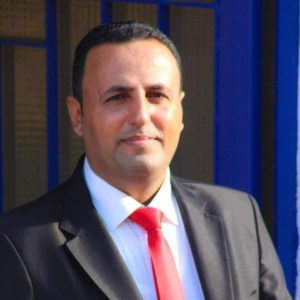
Bachir Zendal is Assistant Professor in Translation and French Literature at the University of Dhamar. Bachir is a translator and short story writer. He has a number of publications, both in translation and literature.


